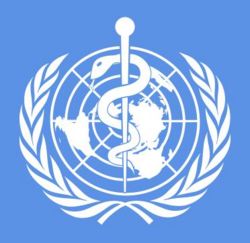Organ trafficking at issue in new UN, Council of Europe effort
 New York - The United Nations and the Council of Europe jointly called on Tuesday for international measures to prevent trafficking in human organs, tissues and cells (OTC).
New York - The United Nations and the Council of Europe jointly called on Tuesday for international measures to prevent trafficking in human organs, tissues and cells (OTC).
Separate agreements should also be worked out to stop human trafficking for the purpose of removal of organs, which is described as a small part of the wider organ trafficking problem.
A study provided by the UN and Council of Europe called for an international convention to prevent trafficking in OTC, protect the victims and prosecute the offenders. But the authors of the study said they were still in the preliminary stage of establishing the data, facts and figures about the problem.
The authors, who belong to the UN, the Council of Europe and several universities, noted the lack of any written regulations or oversight of organ sales and transplants that transcend national boundaries.
They called for an internationally agreement and a legal system setting out the definition of trafficking in OTC which would take into account existing standards of international organizations like the World Health Organization. They said ethics and bio-ethical issues should also be discussed on an international level.
"Trafficking in human beings is a real and growing problem all over the world," the study said. "Human beings are bought and sold a commodities."
It said organ trafficking is still "relatively unknown and insufficiently researched."
The UN and Council of Europe called on the UN General Assembly to begin the process of setting up an international convention to fight trafficking for the purpose of organ removals and transplants.
The study "points to the possibility of a high number of unreported cases of both crimes (trafficking in OTC and organ removal), because of low risks and huge profits for the perpetrators."
It cited the so-called "transplant tourism" which involves the recipients travelling, usually from wealthy nations, to receive organs in countries where legal measures do not exist to protect organ donors or prevent the crime of organ, tissue and cell trafficking.
The study estimated that 10 per cent of kidney transplants performed annually around the world come from trafficked organs.
The authors said the study cannot identify countries involved in organ trafficking despite numerous news reports pointing to the practice in China and some other countries.
The Global Observatory on Donation and Transplantation said almost 100,000 patients worldwide receive every year a solid organ transplant. It said the number of tissue and cell transplants is much higher than organ transplants, but no figures were available.
The World Transplant Registry said there have been annually an estimated 65,500 kidney transplants, 20,300 liver transplants, 5,300 heart transplants, 3,000 lung transplants and 2,500 pancreatic transplants. dpa